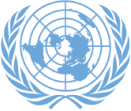Mr. Chairman
I am honoured to speak today on behalf of the 14 Member States of the Caribbean Community (CARICOM). Allow me to congratulate you and the members of the Bureau on your election and to assure you of CARICOM’s full support and cooperation in the execution of the Committee’s work.
CARICOM associates itself with the statement delivered by the distinguished representative of the State of Palestine on behalf of G77 and China.
At the outset, we thank the Secretary General for the valuable reports provided under this agenda item and we take note of the recommendations they contain.
As we continue to strive for the advancement of women, this is an important opportunity for stocktaking and for the renewal of commitments. CARICOM Member States recognize the essential role that women play in the socio-economic and political development of our region and we take pride in our achievements in promoting gender equality and the empowerment of women and girls, as we recognize that there is still much work to be done.
Our region continues to make strides towards the achievement of the sustainable development goals related to gender equality and the empowerment of women, including in:
- Mainstreaming a gender perspective in the development of national policies and programmes;
- Enhancing education and training opportunities for women and girls; and
- Increasing the participation of women in leadership positions and in decision-making.
As we approach the twenty-fifth anniversary of the Fourth World Conference on Women and the adoption of the Beijing Declaration and Platform for Action, a historic roadmap signed by 189 countries that set the agenda for the realization of women’s rights, and which has been an instrument for global mobilization to end discrimination against women and girls, it is no longer acceptable to talk only about the goals that we hope to achieve. We must now begin to measure the progress we have made in achieving our goals and examine the reasons for our shortfalls. Introspection must be followed by action. Towards this end, reliable data collection and analysis are essential. This has always been a major challenge for our region, but we continue to seek support from our development partners for building our capacity to collect credible data and information based on which policies and action plans can be developed. I take this opportunity to thank UN Women for its support in assisting Member States of CARICOM in preparing national reports that review the progress made in implementing the Beijing Declaration and Platform for Action.
Recognizing the importance of literacy and education for the advancement and economic empowerment of women and girls, the provision of education remains a strong focus in all CARICOM countries. Women and girls are encouraged to pursue their ambitions, and their achievements are celebrated in their communities and villages and, indeed, by the society as a whole. In the 2018 Global Gender Gap Report, among countries sharing the top ranking on closing the gender gap in educational attainment were Barbados, The Bahamas and Jamaica. Barbados and The Bahamas were also ranked 2nd and 3rd respectively on economic participation and opportunity. The 2016 UNDP Caribbean Human Development Report found that good educational attainment or education at the secondary and post-secondary levels were associated with both lower teenage pregnancy and a reduction in violence against women, a problem that still plagues our region.
The Report also found, however, that despite women in the region recording higher access to, and performance in, secondary and tertiary education than men, the situation of women in the labour market remains unequal as women tend to have lower level and lower paying jobs than men. Indeed, women in the region suffer from higher economic vulnerability and often receive lower salaries for equal jobs and dedicate three times more time to unpaid work than men.
In his message to commemorate International Women’s Day this year, the Secretary General of CARICOM reflected on the current state of gender equality and the advancement of women in the region. He referred to recent studies that found that in all countries of the region, the employment rate is lower for women than for men and that men were noticeably more likely than women to be employed, especially if there were children under five years in the household. Further, gender-based stereotyping has resulted in occupational segregation with women more likely than men to work in the care economy (paid and unpaid) and in service-oriented and clerical positions.
Mr. Chairman
Despite these challenges, women in our region have established themselves as dependable partners in the development process and play crucial roles in promoting sustained and inclusive economic growth and in eradicating poverty. While we have not achieved gender parity, women are playing greater roles in decision making, including in the political sphere. More women now hold high-level positions in Government and in elected offices.
In this regard, the report of the Secretary General that there has been some improvement in the status of women in the UN system is welcome, especially in its finding that there has been an increase in the representation of women in the Professional and higher categories of the UN system. We consider this report to be of key importance as it is for the UN to set the example for the rest of the world.
Mr. Chairman
Violence against women continues to be a problem for women worldwide. CARICOM Member States continue to battle this scourge, which has gravely affected the empowerment of women and girls and gender equality in our society. Our Governments have taken measures to reduce and prevent violence against women in the Caribbean, including improved data collection, in order to better understand and address the underlying causes of this violence. In this regard, with the collaboration of UN Women, the CARICOM Secretariat and other partners, prevalence surveys on gender-based violence are being conducted in our Region for the first time.
In addition, CARICOM Member States continue to review and strengthen our national legislation in order to deter and punish perpetrators of such crimes. This is in addition to developing and implementing strategies aimed at addressing unequal power relationships between men and women and fostering greater respect.
An innovative initiative in the region has been the hosting of Workshops under the theme “Rethinking Masculinity and Understanding Gender Equality as a Means of Ending Gender-Based Violence in Caribbean Schools”. This is in recognition of the well-established fact that improved relations between women and men cannot be achieved by the efforts of women alone – men must be an integral part of the process.
Indeed, CARICOM supports the engagement of men and boys in efforts to eliminate all forms of violence against women and girls, including sexual harassment. We firmly believe that a multifaceted approach that includes measures such as encouraging the equal sharing of parenting and household responsibilities, public awareness campaigns, the engagement of community leaders to help address discriminatory social norms and gender stereotypes and robust legislative regime can bring about significant changes.
Mr Chairman
While significant progress has been made in advancing the status of women globally, it is still true that many of the world’s poorest people are women. We are concerned about the findings in the Secretary General’s report that women and girls in rural areas continue to suffer more significantly from gender inequalities, discrimination and violence, now amplified by the effects of climate change. While CARICOM Member States continue to pursue policies that benefit our rural women and girls, the debilitating effects of climate change provide serious setbacks to rural women who experience material losses of their homes and agricultural livelihood as well as food insecurity and health challenges. The recent devastation caused by hurricane Dorian emphasizes that climate change needs to be a priority for all.
Mr. Chairman
A significant factor affecting the ability of Member States to achieve their objectives in the area of the advancement of women is that of inadequate resources. We look forward to strengthened international cooperation and greater developmental assistance that have gender equality and the empowerment of women as a priority.
As we pursue the advancement of women, we remain focused on - the attainment for all women of equal pay for equal work, equal sharing of unpaid care and domestic work, an end to sexual harassment and all forms of violence against women and girls, improvement of educational opportunities, robust gender responsive universal health coverage and equal participation in decision making in political and other areas of life.
The Member States of CARICOM take this opportunity to reiterate our commitment to ensuring that every effort is made at the national level to bring about gender equality and the empowerment of women.
I thank you.


